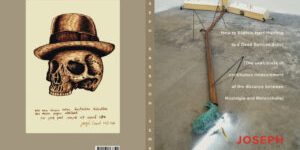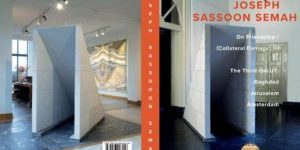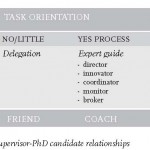Truth or Dare: Tunisia’s case ~ Keynote Speech Adel Maïzi
No comments yetWith a keynote speech of Adel Maïzi from Tunisia’s Truth and Dignity commission, that touches on the painful processes of ‘truth telling’ and paves the way beyond the post-truth society.
Tunisia’s case
Those who in the current post- truth era wish to undertake a serious attempt to go beyond ‘the post-truth society’ and would like to revisit and redesign societies in Europe and the MENA region can’t ignore ‘the case of Tunisia’.
After a history of colonialism and dictatorships, in which ‘truth’ functioned as political instrument, control tool, construct of power or strategy to survive, the country is desperately seeking for ‘ the truth’ about its history and searching for a certain consensus about basic social and political values.
The deep wounds and scars of Tunisia’s post (or ‘before’?) – truth era are very present in today’s society.
Deep distrust, historically grown, among citizens, between citizens and political parties and toward state’s institutions represent the biggest obstacle to social pacification.
In 2014, Tunisia launched a Truth and Dignity commission, inspired by south- Africa amongst others, to uncover the truth of human rights abuses, preserve the memory for the nation and help reform the system.
Now that the mandate of the commission is nearing its end, it’s possible to take stock and see what has been achieved. In a series of hearings, the commission has opened a Pandora’s box of testimonies of victims of cruelty, torture, violence and rape. The first hearings were viewed by about a third of the population and gave rise to debate and concern in and outside the country. The testimony of the victims has shredded long-accepted official narratives and has exposed serious human right violations by the Tunisian authorities, human rights violations by authorities is still taboo in large parts of the world.
The first sings that the truth-telling is changing attitudes and opening a path to reconciliation have presented themselves.
Yet, the question whether the commission will fulfil her purpose remains open.
Tunisia’s Truth and Dignity has, so far, not been able to unshackling itself from the damaging divisions that have been characterising the country for decades. Politicians and media commentators rushed to criticize the hearings and undermine the work of the commission.
Officials who worked for the previous governments complained that the hearings are one -sided while citizens accused the commission of partiality and political motivations.
Why is the commission only focusing on RCD, the ruling party since 1956 and does Ennahda, the Islamist party who won the 2011 elections, remain unaffected? Who is responsible for the series of destabilizing terrorist attacks in the first years after the uprisings?
Is it really necessary to dig deeper and wouldn’t be better to turn the page?
If nothing else, Tunisia’s Truth and Dignity Commission has opened the debate about the significance of Truth in present day’s societies. Can societies do without a truth? Do citizens have a right to truth and what’s needed for more equal and inclusive working institutions?
You May Also Like
Comments
Leave a Reply





